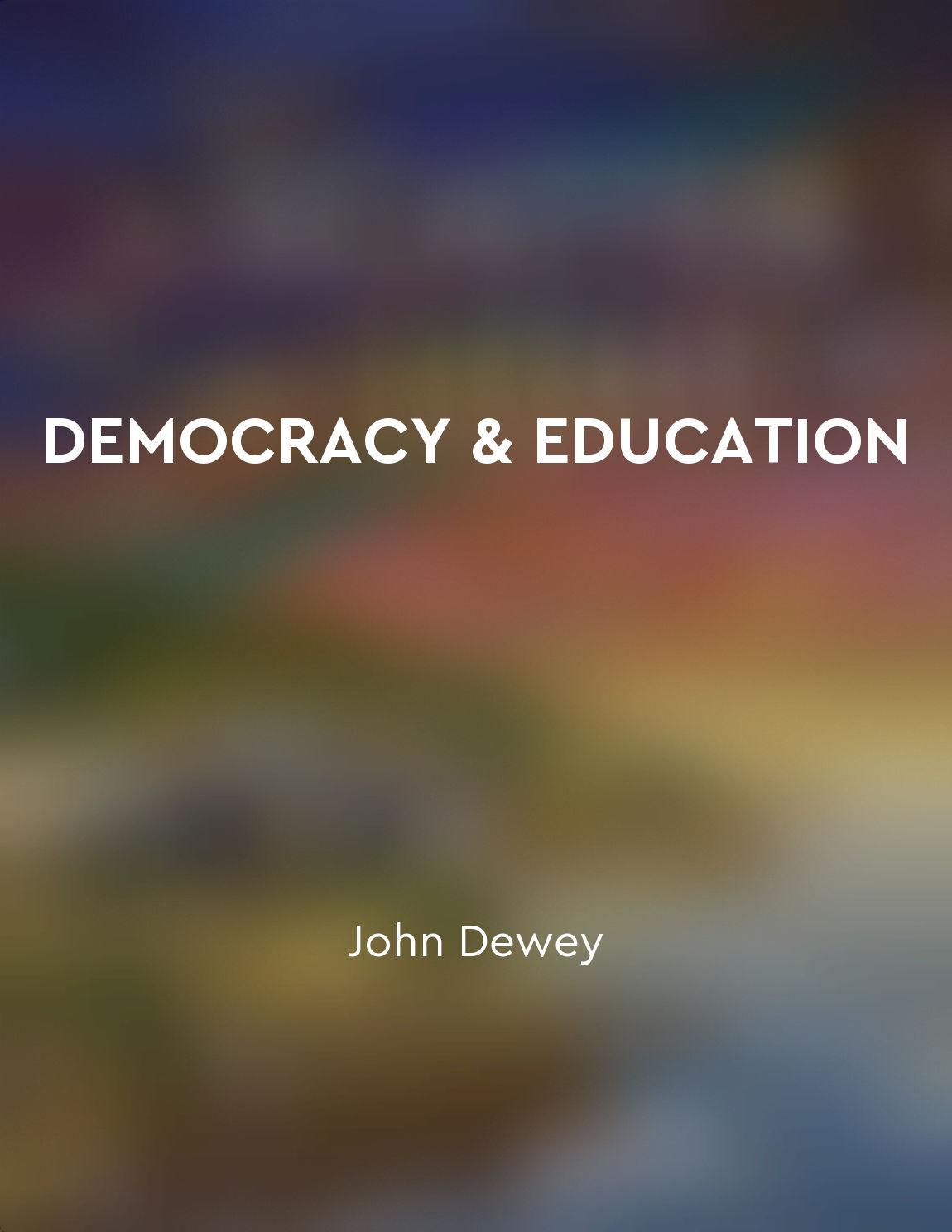The education system serves to reproduce social inequalities from "summary" of Distinction by Pierre Bourdieu
The education system is often seen as a means of social mobility, a way for individuals to rise above their social origins and achieve success. However, Pierre Bourdieu argues that the reality is quite different. In his work "Distinction," Bourdieu demonstrates how the education system actually serves to reproduce social inequalities rather than eradicate them. One of the key ways in which this occurs is through the concept of cultural capital. Bourdieu suggests that individuals from higher social classes possess a greater amount of cultural capital, which includes knowledge, skills, and cultural tastes. This cultural capital is often passed down from generation to generation, creating a cycle of privilege that is difficult to break. Furthermore, Bourdieu argues that the education system itself is structured in a way that favors those with higher levels of cultural capital. For example, he points out that the curriculum and teaching methods tend to reflect the cultural values and norms of the dominant social class. This means that students from lower social classes may struggle to succeed in an educational system that is inherently biased against them. In addition, Bourdieu highlights the role of social networks in determining educational outcomes. He suggests that individuals who come from privileged backgrounds are more likely to have access to valuable social connections that can help them succeed in school and beyond. Conversely, those from disadvantaged backgrounds may lack these connections, putting them at a significant disadvantage in the education system.- Bourdieu's analysis of the education system reveals a troubling reality: far from being a vehicle for social mobility, education often serves to perpetuate and reinforce existing social inequalities. By understanding the ways in which cultural capital, curriculum bias, and social networks intersect to disadvantage certain groups, we can begin to address the structural inequalities that underlie the education system.
Similar Posts
Respect for others is a fundamental principle
Respect for others is a fundamental principle. It is the cornerstone of any civilized society, the bedrock upon which all human...

Schools should foster a sense of community
Schools play a crucial role in shaping the social fabric of a community. By bringing together students, teachers, parents, and ...
Cultural narratives shape human belief systems
Human belief systems are not static entities but are constantly evolving constructs that are shaped by the cultural narratives ...
Quest for acceptance and equality
The search for recognition and fairness has been a constant theme in the lives of Afropeans. This pursuit is rooted in the desi...
Centering experiences of marginalized students
The idea of centering the experiences of marginalized students is a crucial aspect of critical pedagogy. It involves recognizin...
Human behavior is shaped by unconscious forces
David Brooks delves into the intricate world of human behavior, exploring the idea that our actions are often guided by forces ...
Soft skills are in demand
In today's fast-paced and ever-changing world, the traditional markers of success are no longer sufficient. The demand for indi...
Economic opportunity is essential for reducing poverty
Economic opportunity is a crucial factor in the fight against poverty. Without access to opportunities for employment, educatio...

The invention of money exacerbated inequality
The advent of money played a significant role in the exacerbation of inequality among mankind. Before the introduction of money...

Role of government policies in shaping class relations
Government policies play a vital role in defining class relations within a society. Policies formulated by the government can e...

